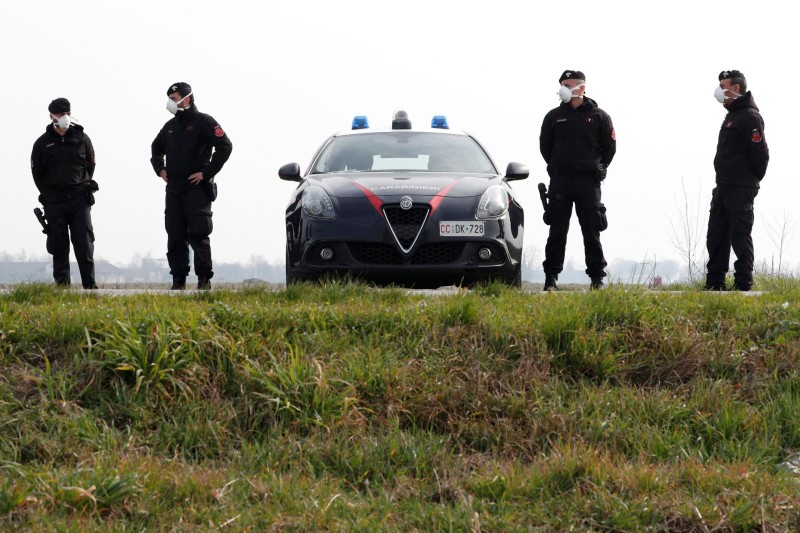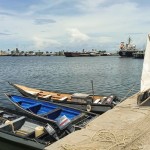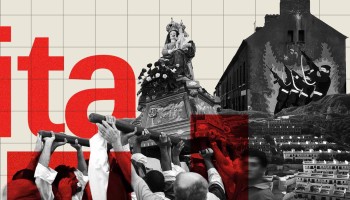Officers had stopped a man on the street in the remote Calabrian village of Bruzzano Zeffirio, at the southern tip of mainland Italy, while enforcing movement restrictions the government has imposed to halt the spread of coronavirus.
“The conditions created by the ongoing sanitary emergency turned out to be fatal for Cesare Antonio Cordi,” police said in a statement following the March 12 arrest of the 42-year-old alleged leader of the ’Ndrangheta clan in nearby Locri, a stronghold of the organized crime group.
The man told them he was delivering groceries to a friend but the address he provided was listed as uninhabited, raising suspicions among the officers, who put the house under surveillance.
“Then the faint glow of a cigarette – spied through the window shutters – was enough to give certainty [that] … there was the wanted man whose tracks they had been following for days,” police said in the statement.
The arrest has prompted questions about how Italy’s notoriously powerful organized crime groups are coping in a country struggling to deal with an outbreak of COVID-19, which has so far caused 59,000 confirmed cases of infection and more than 5,400 deaths.
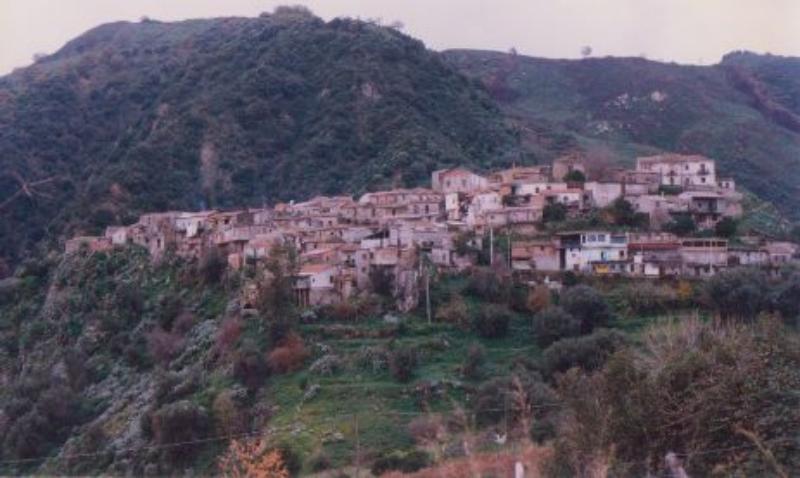 Bruzzano Zeffirio, Calabria. (Photo by: Municipality website)In addition to dealing with increased police scrutiny, experts say organized crime groups are finding it harder to operate in the midst of the pandemic, which has prompted Italian authorities to take drastic measures, ordering businesses to close and people to stay in their homes.
Bruzzano Zeffirio, Calabria. (Photo by: Municipality website)In addition to dealing with increased police scrutiny, experts say organized crime groups are finding it harder to operate in the midst of the pandemic, which has prompted Italian authorities to take drastic measures, ordering businesses to close and people to stay in their homes.
Groups like the Sicilian mafia and the Calabria-based ‘Ndrangheta smuggle illegal goods, including drugs, on cargo vessels. While transnational shipping routes have not been disrupted so far by the global pandemic, distributing drugs has become far more difficult once they reach Europe.
“Certain types of drugs are still on the move,” said Anna Sergi, a criminologist at Britain’s University of Essex, mentioning cocaine in particular, which is a 5.7-billion-euro-a-year industry in Europe, according to the police agency Europol.
“The problem is who is going to pick them up?”
Sergi said movement restrictions could result in drugs being stuck in ports such as ‘Ndrangheta-controlled Gioia Tauro, a Calabrian harbor that Italy’s anti-Mafia commission estimated in 2006 was the entry point for 80 percent of Europe’s cocaine.
Profiting from Pandemic
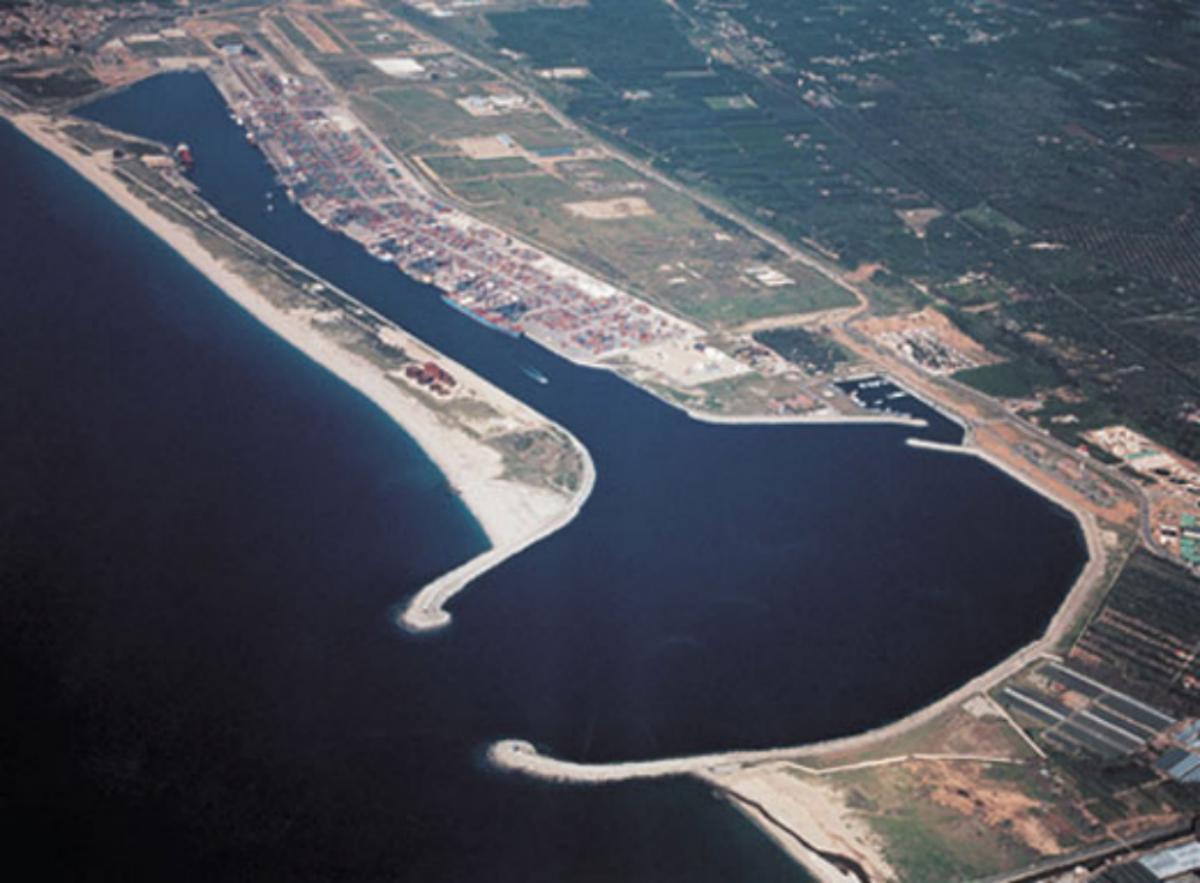 The port of Gioa Tauro by Istvánka (CC BY-SA 3.0)Experts say that Italian crime groups will be hurt as the country’s economy contracts, but they may also find ways to capitalize on the crisis.
The port of Gioa Tauro by Istvánka (CC BY-SA 3.0)Experts say that Italian crime groups will be hurt as the country’s economy contracts, but they may also find ways to capitalize on the crisis.
“When the economy collapses or is in a shutdown, organized crime also suffers,” said Federico Varese, a professor at Oxford University.
“I don’t think they have all that much cash lying around. The longer it lasts, the harder it becomes for them to operate,” said Varese, who has written several books on organized crime.
He added that criminal organizations could profit if companies they control are able to win contracts supplying healthcare equipment. They may also purchase failing businesses, or lend money to their owners to prop them up.
That raises concerns about criminal clans preying on small business owners.
“What I’m concerned about is loan sharking,” said Sergi. “You’ll see entrepreneurs in complete distress and they can't pay employees, so it’s much easier to talk to a loan shark.”
She added that rising economic hardship could also make it easier for criminal groups to recruit workers in industries like shipping, who could be convinced to turn a blind eye to smuggling.
“People with normal jobs are pressured,” said Sergi. “The economy is collapsing, so corruption and illegal revenue will increase.”
She added that criminal organizations might also use their influence on local communities to help contain the spread of the coronavirus, even working with authorities to ensure residents follow quarantine protocols.
Sergi suggested that crime bosses may have personal reasons for enforcing quarantine in their fiefdoms: many of them are senior citizens, the demographic most likely to die from the virus.
